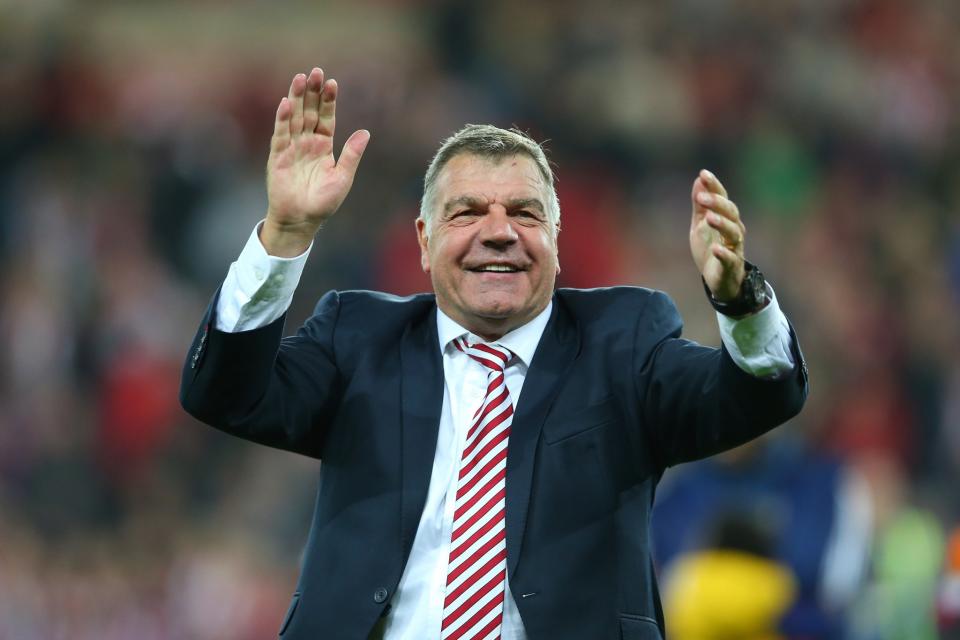England opts for Sam Allardyce as new Three Lions manager (and further stagnation)

It seems like Sam Allardyce will, at long last, be appointed England manager.
Following the recent debacle at Euro 2016, wherein England was bounced by puny Iceland in the round of 16, Roy Hodgson resigned. Which was really just a fancy way of saying that his contract was up and, after three straight underwhelming major tournaments, he wasn’t being brought back anyway.
However, while looking for a replacement, the English, who still seem to harbor the baseless belief that they have managers capable of curing their national team’s many ills within their ranks, found a dry well of talent.
The habitual names of unremarkable managers were trotted out, headlined by Allardyce and Steve Bruce, journeymen of unspectacular accomplishment. And then there was the persistent link to United States men’s national team head coach Jurgen Klinsmann, which seemed to titillate an American fan base that has grown bored with him. In a bewildering fit of adventurousness, the FA seemed to be considering the German as a reformer candidate.
Notions that the Football Association should perhaps look further abroad – and past Klinsmann, who retains admiration over there for his playing days with Tottenham Hotspur – were quickly discarded, no matter how limited the options at home were.
On Wednesday afternoon, several English outlets reported that Allardyce, after weeks of speculation, had “won the race.” If it really was a race, it might have been one those drunken stumbles after putting your nose to a baseball bat and spinning yourself around its axis five times.
But the process of accepting such an uninspiring choice had already begun among the English press a few weeks ago, attempting to rally enthusiasm for his cause. Allardyce’s biggest accomplishments are saving Sunderland from relegation last season, pulling the same trick with Blackburn Rovers a few years ago, and getting promotion with West Ham, Bolton and Notts County. But he has never managed a club bigger than Newcastle United. And that ended in tears by January of his first season in charge.
He has no international experience whatsoever, as a manager or a player – although he did play abroad for the Tampa Bay Rowdies of the old North American Soccer League in 1983 – and at 61, he’s hardly an up-and-comer.
Allardyce is lauded for being a modern and malleable manager who has taken to making the most of analytics and other advancements, where plenty of his brethren scoff at all those continental affectations. And there’s no questioning his credentials in optimizing his resources with smaller clubs. His turnaround with Sunderland on a tight deadline was impressive.
Yet his hiring also feels suffocating and regressive. The quasi-soccer xenophobia of the FA’s managerial search – it appears that Klinsmann was never even actually interviewed; only Allardyce and Bruce were – once again lands the federation with a man unlikely to push the England program forward. The national team has been stunted in its tactical development for years, leaving it far behind as other, smaller nations have evolved.
In spite of a generous helping of young talent, Hodgson’s England convinced nobody at the Euro. And it’s now been 20 years since the country that codified and popularized the sport has even reached the semifinals of a major tournament – Euro ’96 on home soil. There are various reasons for that, but one of them seems to be a tactical inflexibility that makes it hard to adapt to opponents that are as varied as the countries they hail from.
Allardyce, for his experience and gift for bailing out sinking ships, is about as traditionally English as they come when it’s time to impose a playing style on his team. While he frequently takes issue with this charge, his sides mostly play an archaic kick-and-rush, long-ball game. And with small clubs struggling against better and deeper opponents in a physical Premier League, that largely works.
At the international level, however, it’s more likely to shackle an England team of considerable attacking gifts to a style its players have evolved out of. Most all of them play at clubs with foreign managers who have exposed them – and gotten them accustomed – to more modern concepts.
Under Allardyce, England might get better at scraping out close games, and perhaps he’ll even cure the national team’s multi-generational case with stage fright, but he’s unlikely to actually make the Three Lions better. Their evolution might be sacrificed at the altar of respectability, something England craves following one recent humiliation after another.
But with Allardyce in charge, the full potential of a wunderkind-laden team of Raheem Sterling, Harry Kane, Marcus Rashford and Dele Alli promises to remain untapped.
Leander Schaerlaeckens is a soccer columnist for Yahoo Sports. Follow him on Twitter @LeanderAlphabet.



